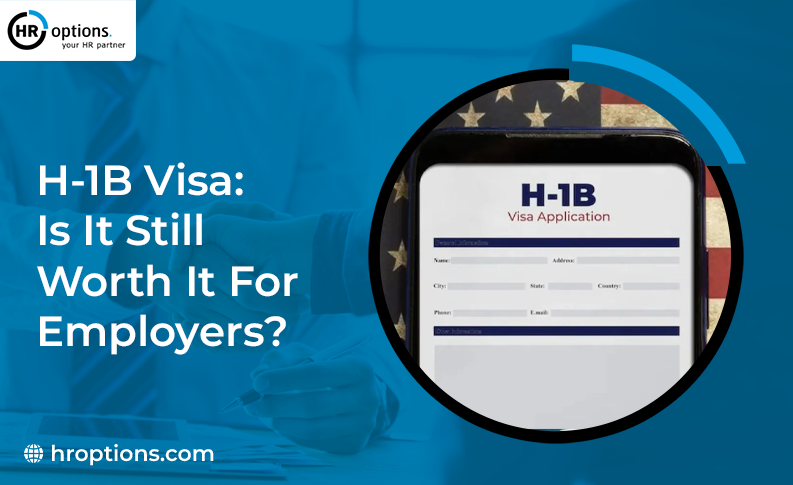Expanding Your American Business to the Canadian Market
When your business is growing, expanding to a different country might be the next item on your list. This can be a pretty great idea because you could attract a new market by doing this…
NEW FRONTIER: ENTERING THE CANADIAN MARKET
 Nunzio Presta
Nunzio Presta
Senior Sales and Marketing Executive
If you have an American business, one of the best places to expand to would be Canada. It has a stable economy; a testament to this was when the United States recession closed a lot of businesses, Canadian banks and real estates managed to firmly retain their place in the business world.
There are a lot of ways to enter the Canadian market. Some companies do exports, while there may be others that acquire business through mergers and acquisitions or establishing a franchise.
But, if you want to start small and get a feel for how the Canadian market works, hiring Canadians remotely would be a great kick-start for you.
Hiring Canadians to work remotely for a position in your company or having them do some sales or marketing jobs can help expand your brand in Canada. Either way, let’s get down to business and learn more about how hiring remote Canadian employees works.
HOW TO HIRE CANADIANS FOR REMOTE WORK?
There are a handful of ways that you can choose to hire a Canadian to work for your business remotely. That said, it’s best to know how each option works and the responsibilities that come with them.
What we mean with “responsibilities” are the legal responsibilities for your employee and the Canadian Government. Let’s focus on the options first.

Even if they do their ruling this way, laws of each province still differ in detail compared to other provinces. Also, if a law has not yet passed, employers must consider court rulings (“precedent”) when making employment decisions. It’s best to know the employment law of the province where your business will be so as to make sure you’ll be abiding by the right law.
When employing Canadians, there are some policies that you should know about, as it has some differences with the policies under American employment law.
Here are some of the topics that you should check out the policy of for better compliance.

HIRE A CANADIAN AS AN INDEPENDENT CONTRACTOR
You may hire a Canadian employee as an independent contractor, which would be more like a business-to-business relationship than an employer-to-employee relationship.
Being an independent contractor means they could have the flexibility with their work schedules. They can also hire someone to do their job as they are a contractor and not a regular employee of your company.
Be wary of this option as it might bring some problems to you and your employee in the long run. Here are some reasons why.
Because they are technically hired as contractors, your business would not have legal responsibilities regarding their government tax and contributions. They would need to pay for these as independent contractors even if they work like a normal employee.
Though, with this arrangement, your employee could be put at risk and be identified as misclassified workers by the Canada Revenue Agency or CRA. If that happens, your employee would be penalized for the misclassification.
Normally, it’s the employer that would be penalized, but if your company is not based in Canada, your employee will need to face the consequences of this arrangement. They will be the one paying penalties and other taxes that would have normally been paid by the employer in a traditional setup.
This kind of situation could affect your relationship with your employee and could even give a bad name for your business. This might not be the best option to take, but it’s good to know about it so you can compare it to your other options.

HIRE A CANADIAN WORKER THROUGH PEOS IN CANADA
Professional Employer Organizations or PEOs are registered employment agencies in Canada that will act as your talent source to hire workers from the country.
How this work is that they will hire the people you need, and they’ll be the Employer of Record or EOR of these workers. Once they are hired, they will have the employee work for you as you are their foreign client.
With this arrangement, you will have full control of their job just like how a normal employer would. But since the PEO is the employer of record for your Canadian employee, they will be covering the payroll concerns on your behalf.
For the employee, being hired through a PEO is a good option as they will be legally working for your company and also be getting the benefits that they are supposed to receive. Taxes and contributions would also be processed and paid accordingly.
This option is also a great choice for the business as everything is legal. Choosing a trusted PEO would give you an assurance that your business is in compliance with Canadian Employment Law.
WHAT ARE YOUR LEGAL RESPONSIBILITIES?
As the employer of your Canadian worker, you will have legal responsibilities to your employee and the Canadian government. Hiring the country’s citizens means that naturally, you will need to follow their labor codes and employment laws.
If you hire your employee through a PEO, payroll deduction matters will be covered by them as the employer of record and give you less things to worry about.
One of the items that you should cover under payroll or source deductions is their government contributions. Their Employment Insurance (EI) and Canada Pension Plan (CPP) premiums should also be paid on time.
These items are important as it gives benefits to your employees when they are unemployed or when they finally retire.

Make sure as well that the federal, provincial, and/or territorial income tax are calculated, deducted, and paid correctly. Taxes may differ depending on the province so make sure to check the employment laws of where your employee is located.
The source deductions should be calculated correctly and remitted to the Canada Revenue Agency or CRA (and, if applicable, Revenu Quebec). You may use the the CRA Payroll Deductions Online Calculator and/or the Revenue Quebec Online Calculator to calculate those deductions based on your employees salary, wage or commissions.
In Canada, a tax form should be issued to the worker at the end every year. As the employer, you or your PEO partner should send this form to your employee.
CONCLUSION
There are ways to hire a Canadian remote worker, but the best two options are to hire them directly through your company as an employee or through HR organization, like HR Options.
If you are serious about entering the Canadian market, you need to learn more about Canadian Employment Law so that your business relationship with your employee will not be jeopardized due to lacking compliance with the law.
Again, payroll deductions are important for the employee whether they are hired as a contractor or as a regular employee, so make sure these deductions are calculated and remitted on time.
Hiring a remote Canadian worker could be your first step to enter the Canadian market so make sure you plan it thoroughly and wisely so all your investments and efforts will help with your success in the new market.
GET EVERY NEW COVID-19 BEST PRACTICE RESOURCE
Receive exclusive access to our library of COVID-19 resources.
RELATED ARTICLES
THE SPECIFICS TO CANADA’S EMPLOYMENT STANDARDS ACT
CANADIAN EMPLOYMENT LAW FOR AMERICAN EMPLOYERS
EMPLOYEE HIRING PROCESS: THE CANADIAN WAY
OTHER ARTICLES
WORKPLACE TRENDS #4: SOCIAL MEDIA – ENGAGE AND EXCHANGE
The Duties And Goals Of An HR Department
Co-Employment and the Risks It Comes With
LET'S CHAT ABOUT YOUR HR OPTIONS
Chat below or call (800) 777-8944 for an immediate response.








